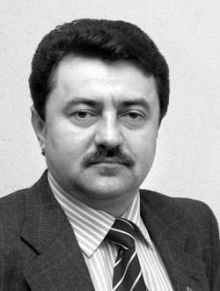It appears that there was no basis for the gas shock that swept the country after reports by some news agencies. Journalists first heard about this last Tuesday from Oleksiy Ivchenko, the head of Naftohaz Ukrainy, after his return from Turkmenistan. According to Ivchenko, Ukraine received an “absolutely positive result, which it had expected — we have no debts in terms of product and payments.”
Ukraine’s main gas supplier explained that this result means that they succeeded in converting the outstanding product part of the payments for Turkmen gas into foreign exchange payments, and at quite an advantage for Ukraine. The two sides signed appropriate addenda to the earlier agreements. Ivchenko explained that the problem was that the Turkmen side had not coordinated the prices of certain goods that Ukraine had to provide in lieu of gas payments. Under this agreement, the term of delivery was to be determined after coordinating this aspect, meaning that there could be no arrears. According to Ivchenko, both sides agreed that there was no debt and there is none today. The president of Turkmenistan figured out the situation with Ivchenko’s help and used this opportunity to reprimand his experts for misinforming him. Moreover, since the Turkmen side is not satisfied with average world gas prices (determined by averaging the highest and lowest price, Ivchenko explained), according to which Ukraine was preparing to deliver its goods under the agreement, it agreed to accept the rest of the commodity payments ($109 million and other product payments worth $243 million were made on time) in hard currency, at the gas price of $44 per 1,000 m3, whereas commodity payments were made at $58.00. The National Joint Stock Company (NAK) will thus have to pay $80 million instead of $109. “This is a substantial saving from this agreement alone,” Ivchenko summed up, adding that perhaps one could have looked for pretexts for a scandal in certain alternative versions of statistics possessed by the two sides, but “we vindicated all the figures.”
Meanwhile, some Ukrainian and Russian media have published reports that Turkmenistan was going to cut off gas supplies to Ukraine. In response, the head of Naftohaz quoted the President of Turkmenistan Saparmurat Niyazov, who issued this statement during the talks without being requested by the Ukrainian side: “This has never been the case, I never made such a statement (about cutting off gas supplies to Ukraine — Auth.), and I have no such intentions.”
Ivchenko said that Fuel and Energy Minister Ivan Plachkov, who took part in the talks, later said that NAK officials did a great job.
However, equally important and difficult talks must still be held with Turkmenistan concerning a contract for long-term gas supplies. Ivchenko believes that they will also be effective and that Niyazov’s stand on the matter is understandable. The Turkmen president said, “We have a single pipeline and it crosses Russia, so let’s meet and discuss the volumes of gas.”
Back home, Ukraine’s chief gas manager encountered another problem. The Ukrainian-Cypriot joint venture Bosporus is suing Naftohaz Ukrainy for overdue bills worth $100 million. According to Ivchenko, in 2000 NAK, then headed by Mr. Didenko, who, as the protege of Deputy Prime Minister Yulia Tymoshenko, was involved in the scandal around the money to Ostarbeiters who worked in Nazi Germany, issued 100 million dollars’ worth of bills to Bosporus, which transferred them to Unified Energy Systems of Ukraine. The latter company then used the bills to make deals with the Russian defense ministry. Ivchenko declared that Naftohaz Ukrainy will claim in court that the bills are invalid. The hearings in the Kyiv Economic Court promise to be as long and as unpleasant as the accusations by some politicians that Naftohaz intends to raise gas prices needlessly for both consumers and industry. Ivchenko refutes these allegations and insists that the market approach is the only factor. He says that NAK is providing low prices mostly to the super-rich companies, which is how they have shadow incomes and don’t bother about preserving energy sources.







